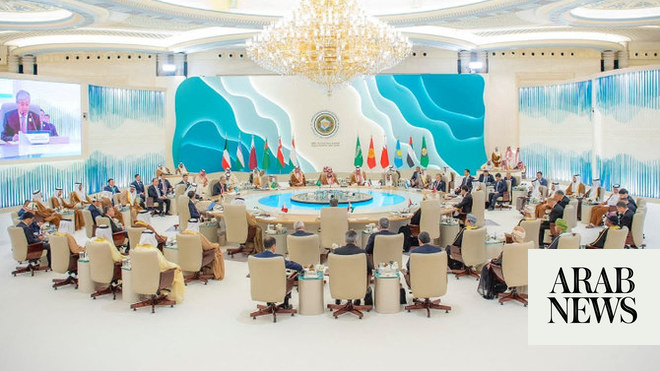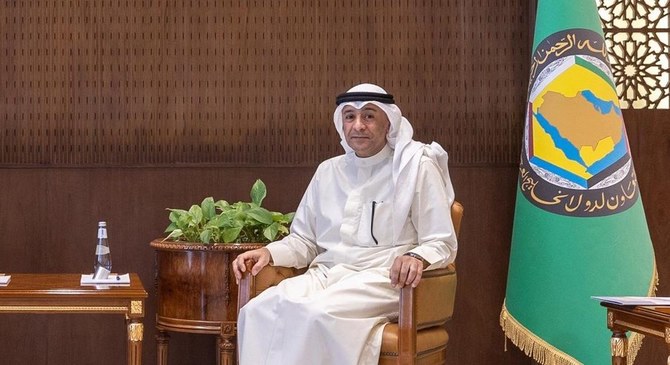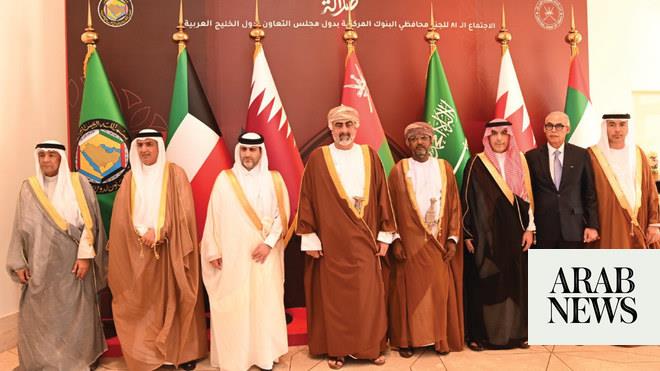
Last week’s GCC summit in Riyadh forged the necessary consensus among the six member states to jointly tackle Iran’s nuclear ambitions and its malign activities in Yemen, Iraq, Syria and Lebanon. Together, the Gulf states want their deep concerns over this pivotal danger to be addressed in any revised international nuclear accord with Iran, and have restated that “any danger that threatens one of them threatens all of them.”
The UAE, Qatar, Kuwait, Bahrain and Oman have also coalesced around Saudi leadership, by endorsing King Salman’s vision for the unity, solidarity and stability of the Gulf region; agreeing to implement the circular carbon economy approach launched by Saudi Arabia during its presidency of the G20; and aligning their national visions for economic diversification with the eventual goal of Gulf economic union, which Crown Prince Mohammed bin Salman alluded to in his opening remarks.
While the unified economic agreement was concluded within a year of the GCC’s creation in 1981, the real push for integration began with the ratification of a revised agreement in 2001. This led to the establishment of a customs union in 2003 and a common market in 2008. However, the regional turmoil in the past decade caused by the so-called Arab Spring and subsequent intensification of the Iranian threat distracted the GCC from its core mission of economic integration.
Against this backdrop, the renewed commitment to collective security from common danger must now enable the Gulf nations to resume the long pending mission, especially as their economies recover from the devastating impact of COVID-19 pandemic. The IMF expects average growth in the GCC to be up to 4.2 percent in 2022 from its current level of 2.5 percent, and its foreign reserves to grow by up to $350 billion in the next three years.
To be sure, the GCC’s economic profile has always been conducive to deeper economic integration. Its six member states share geography, history, culture and political systems. Their combined GDP of about $2 trillion a year from a population of about 55 million is among the largest in the world. The Gulf region possesses 22 percent of the world’s natural gas reserves and 34 percent of its crude oil reserves, half of which are in Saudi Arabia.
The Kingdom is the Gulf region’s center of gravity owing to its size, stature, resources, and geopolitical role — constituting 43 percent of its GDP, 62 percent of its population and 80 percent of its landmass. Like other GCC nations, it is undergoing massive economic diversification and social liberalization under the Vision 2030 program. Being the largest and richest Arab nation, it naturally sees pragmatic interest in greater unity, harmony and integration in the Gulf.
However, as often happens in regional organizations where political sovereignty-centric intergovernmental cooperation sets the pace and direction of the integration process, smaller GCC states have been unwilling to accept the Saudi plea for deeper economic integration beyond the customs union and common market. The UAE’s opposition to fiscal and monetary union, and Oman’s resistance to Gulf union, are two examples.
Saudi Arabia must therefore be more accommodating of the legitimate interests and rightful aspirations of its fellow Gulf nations. Likewise, the other Gulf states must place the necessary confidence in the Kingdom for its leadership role in the Gulf, Arab and Muslim worlds, and as the only Arab member of the G20. The need for such mutually beneficial understanding has become even more important in the light of current economic diversification efforts, especially as Saudi Vision 2030 also seeks to be a catalyst for regional economic prosperity.
To move ahead with the integration agenda, the Commission for Economic and Development Affairs set up at the GCC Secretariat in Riyadh in 2016 can chart a tangible course of action — by first completing the customs union and common market processes. The former has helped to eliminate intraregional tariffs, unify external tariffs and ease capital controls and restrictions on trade in goods and services. The latter has facilitated labour mobility across the Gulf, enabling GCC citizens to move across borders, work in public and private sectors, own property, invest and establish enterprises.
Nevertheless, intraregional trade and investment flows remain far below the actual potential. GCC states continue to differ on the agreed tariff revenue collection and distribution mechanism and the application of a common external tariff regime. Non-tariff barriers persist, and capital controls have relaxed in a limited way. Major infrastructure projects such as the unified natural gas pipeline distribution network and an integrated regional railway system have not progressed either.Going forward, first of all, economic diversification efforts, rather than flaring up new tensions such as between Saudi Arabia and the UAE this year, must enable the private sector to adequately respond to market incentives and expand across national boundaries. Capital controls must further loosen to allow for cross-national investment.
Second, removing the remaining trade barriers, streamlining the cumbersome rules and regulations, and revamping the transmission and transport networks are essential steps to boost intra-GCC trade volume, investment flow and labor mobility.
Third, the GCC needs to strengthen the organizational structure of its Secretariat, and boost its autonomy and resources. Reforms should focus on allowing more flexibility in the decision-making process and better enforcement of decisions, together with stronger arbitration and monitoring mechanisms.
Fourth, while fiscal and monetary union is a logical step ahead, economic union must remain the endpoint. Chasing the mirage of a political union does not make any sense. Supranational structures such as the EU have lost credibility amid rampant crises such as Brexit and the refugee influx, spurring ultranationalist politics.
Finally, the GCC can strive to extend its developmental agenda beyond the Gulf by co-opting other Arab nations and undertaking reconstruction projects in devastated Arab lands. Asia’s two successful regional blocs — the Association of South-East Asian Nations and the Shanghai Cooperation Organization — provide valid lessons; both have expanded their external clout by offering memberships or partnerships to interested countries. They also share the GCC’s consensual and informal style of decision making, and its underlying social and political raisons d’etre.
• Ishtiaq Ahmad is a former journalist who subsequently served as Vice Chancellor of Sargodha University in Pakistan and the Quaid-e-Azam Fellow at the University of Oxford.
Disclaimer: Views expressed by writers in this section are their own and do not necessarily reflect Arab News" point-of-view












